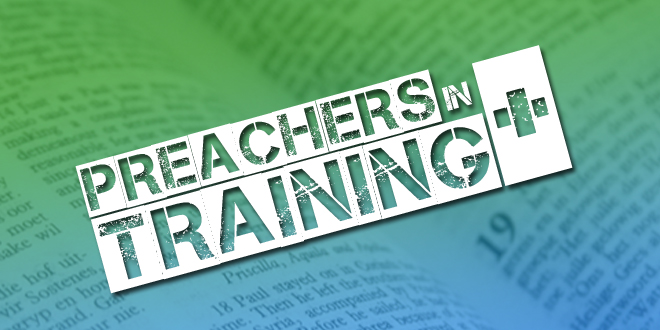What motivates preachers to preach the tough sermons? Why would he choose to use his Sunday sermon time to discuss negative or hard to hear concepts? I don’t think any of us enjoy to hear about hell, the eternal punishment of sinners. I think Peter would say that the tough sermons must be preached so that we do not forget Jesus’ great sacrifice for us (2 Pet. 1:9, 12-13, 15; cf. Luke 22:34, 60-62). Paul would tell us that he preached the “electric” sermons because “the love of Christ compels us” (2 Cor. 5:14). He would admit that many of his sermons were delivered with tear-filled eyes (Phil. 3:18), but preaching the truth is necessary, “in season and out of season” (2 Tim. 4:2; cf. 1 Cor. 9:16). Stephen would remind us that God blesses those who preach the necessary, hard sermons (Acts 7:54-60).
Jeremiah definitely felt the weight of preaching the tough stuff. It weighed so heavily upon him that he contemplated giving up.
For when I spoke, I cried out;I shouted, “Violence and plunder!”Because the word of the LORD was made to meA reproach and a derision daily.Then I said, “I will not make mention of Him,Nor speak anymore in His name.”But His word was in my heart like a burning fireShut up in my bones;I was weary of holding it back,And I could not (Jeremiah 20:8-9, NKJV).
It seems like Jeremiah thought his preaching did more harm than good. It was as if his preaching only amplified the sin that existed among his people. He decided it would be best for him to simply be silent than to continue down this path. But God’s Word is too powerful to be hidden. Notice that this hard sermon was even hard for Jeremiah to preach. This is often (if not always) the case when preachers must preach the tough stuff. It wasn’t that Jeremiah enjoyed bursting bubbles or tearing people down. It was the fact that he had the light to show the way of righteousness (Psa. 119:105). He had the life preserver that would save his fellowman, who was drowning in iniquity.
Today, preachers have the powerful, profitable Word of God that shows us the way toward heaven (2 Tim. 3:16-17; Heb. 4:12). To withhold any part of the message – a part that could be the very part that motivates someone to obedience – is to withhold true love for God and true love for others (John 14:15; 1 John 3:18).
Love is the motivator for the hard sermons – love for God, for Christ, for the Truth as revealed by the Holy Spirit, and love for others.
——————–
This week on Preachers in Training, Ben Giselbach joins me to discuss “Preaching the Electric-Topic Sermons.” Join us live in the chat room this afternoon at 3:45 PM (CST) or watch it Thursday (when it’s released) over at The Light Network.


